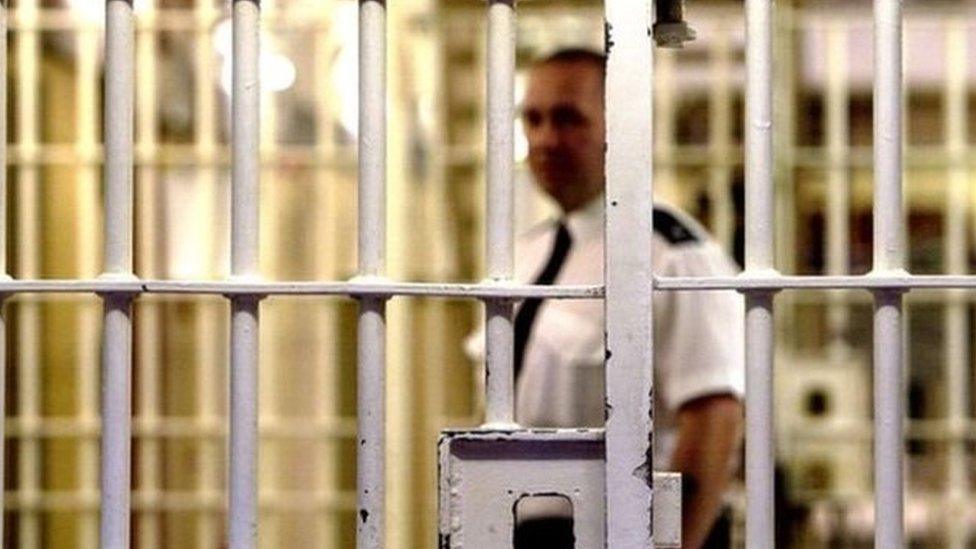Women who commit minor crimes 'need help not prison'
- Published
- comments

More women who commit minor crimes should be given help and support rather than going to prison, a magistrates organisation has said.
The number of women in Wales receiving prison sentences of six months or less has increased in all police force areas except Dyfed-Powys.
But John Bache, chairman of the Magistrates Association, said there was not much benefit to short sentences.
The Ministry of Justice said it was investing in help for female offenders.
The number of women given custodial sentences of six months has gone up by 43% in the past five years - from 320 in 2011 to 485 in 2016.
North Wales Police saw the highest increase of all police force areas in England and Wales, although the overall numbers were small.
They increased from 35 in 2011 to 88 in 2016, a rise of 151%.
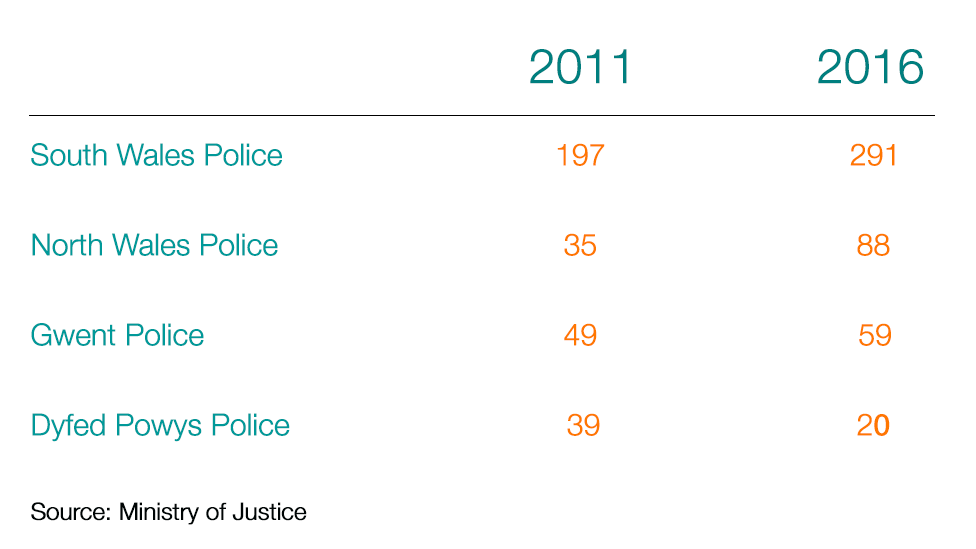
Some 54% of all the sentences given in Wales were for theft while the second-most common crime category was summary non-motoring offences - meaning they are normally heard in the magistrates court - such as television licence evasion or less serious criminal damage.
A total of 246 women were jailed for six months or less for theft in 2016 while 91 were jailed for summary non-motoring offences.
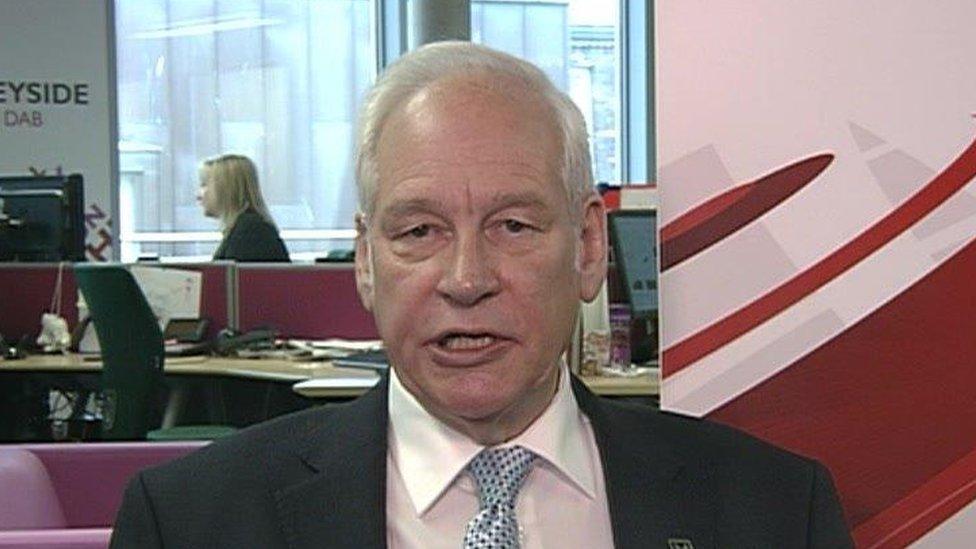
John Bache, chairman of the Magistrates Association, said the organisation would prefer alternatives to prison in some cases
Mr Bache said magistrates tried to avoid handing out short sentences wherever possible.
"It's said that people need to be in prison for a significant length of time before they can become engaged in programmes such as drug treatment programmes," he said.
"But the problem that we have is if there isn't a suitable alternative then sometimes if they pass the custody threshold then we have to send them to custody. If there were suitable alternatives then obviously we would prefer them.
"We would like to see better provision of services in the community, particularly for women, so that we can avoid custodial sentences which everybody is trying to do if at all possible."
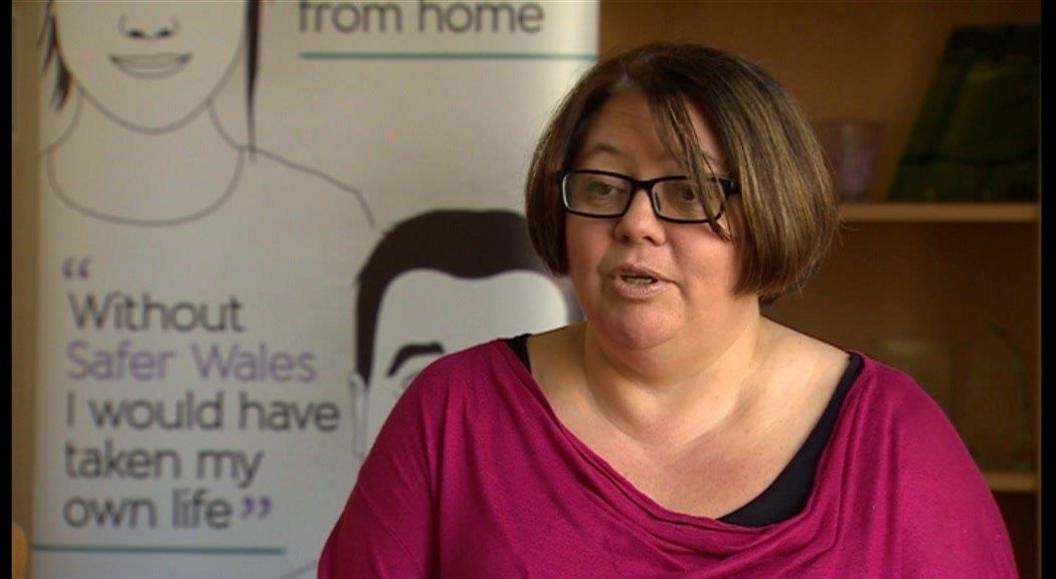
Bernie Bowen-Thompson of Safer Wales says prison has a disproportionate effect on women compared to men
Charity Safer Wales runs a community service with South Wales Police which aims to keep women who commit minor crimes out of the criminal justice system and away from the courts.
If they meet certain criteria and admit their crime, some women are directed into support programmes to address the reasons they offended, for example, domestic abuse or addiction, so they avoid getting a criminal record.
Chief executive Bernie Bowen-Thompson said short sentences had a disproportionate effect on women compared with men.
"There are quite often children who need to get removed because women are often the primary carers and the impact of that can be massive on a child and their future," she said.
More than 350 women have been through the south Wales scheme since February 2016, 90% of whom were not rearrested within six months of accessing the programme.
Similar scheme are run in the other police force areas.
The Ministry of Justice said it recognised female offenders often had complex issues and problems.
"That is why we are investing in better multi-agency approaches in each area and working up a strategy to improve outcomes for women both in prison and in the community," a spokesman said.


'The best thing that's happened to me'
Maria (not her real name) completed the Safer Wales programme and said it changed her life.
She was arrested for stealing from her workplace. Despite a drug addiction, she had always worked but lost her job following her arrest.
It was the first time she had been taken to a police cell.
"It was really frightening and claustrophobic. I was thinking about my partner, my family and my kids," she said.
"My head was all over the place, I don't know how I didn't get a panic attack."
Rather than face a criminal record, she was offered the opportunity to work with Safer Wales to tackle her drug addiction and find a new job.
"They wanted to give me a sick note but I carried on working through cold turkey. I said if I need to pay my price, I will and I'll move on with my life."
After 30 years, she gave up both heroin and cocaine and has not been in trouble with the police since.
"It was such a relief. It's the best thing that's happened to me, I've learnt a lot and I got lots of support."
- Published25 February 2018
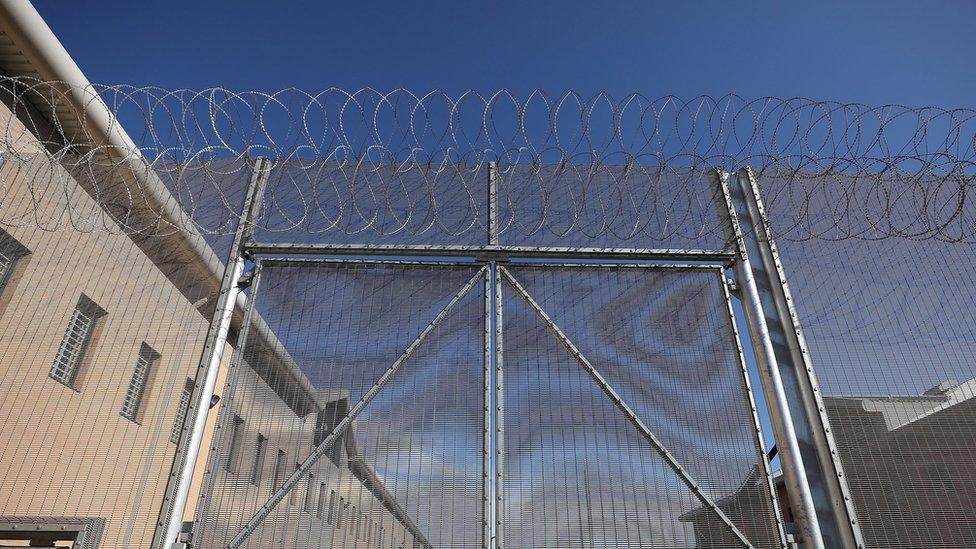
- Published27 March 2018
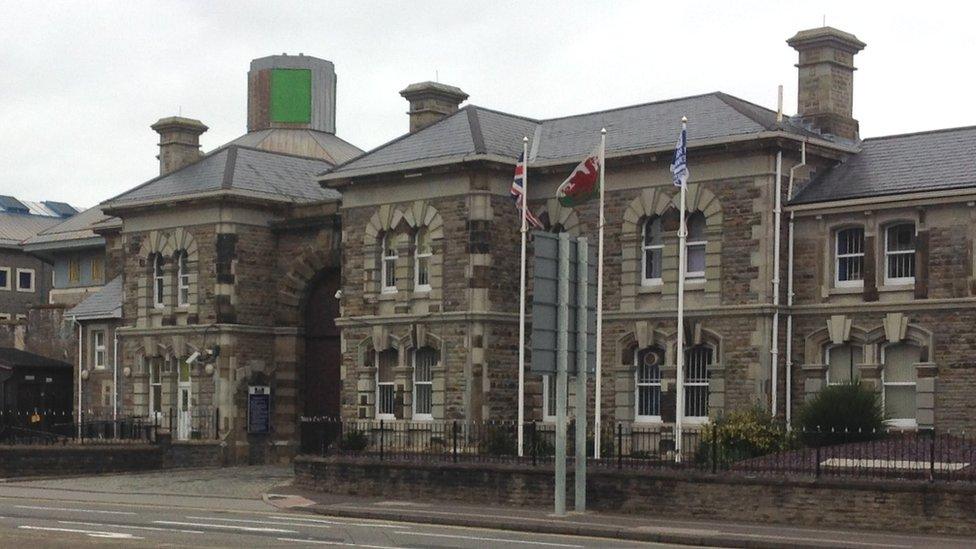
- Published6 April 2018
